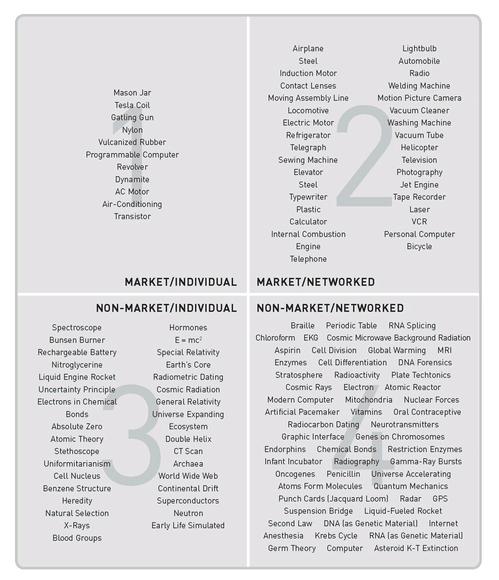Innovation and Information
If I have a $5 bill in my pocket and give it to you, then you have +$5 and I have -$5. By definition, your gain in this scenario results in my loss since I no longer have the $5 available to me. This sort of zero-sum situation can end up creating competition between two or more parties that share a common interest in the same resource.
On the other hand, if I have an idea X and I share it with you, something altogether different happens. The total amount of information in the world increased now that we both know X. We also get the added benefit of me knowing that you know X and you knowing that I know X. Not to mention that you know that I shared X with you.
This sort of geometric increase in knowledge is vital for innovation to occur. Ideas need to spread. They need to bounce around and collide with each other and be manipulated and re-purposed to create something new.
Still not convinced? Let's take a quick look at some of the great ideas from the 19th and 20th centuries. Notice how ideas thrive in non-market networked environments.

(Source: Where Good Ideas Come From)
There are plenty of interesting and challenging problems to solve in life and business. The best way to solve these problems is to share ideas openly across teams, departments, and industries.
It turns out, your best competitive advantage may lie in how well you share the information you own instead of how well you protect it.
Subscribe for Free
Want to stay ahead of the curve? Subscribe now to receive the latest updates, actionable insights, and thought-provoking ideas around business, technology, and leadership straight to your inbox.



